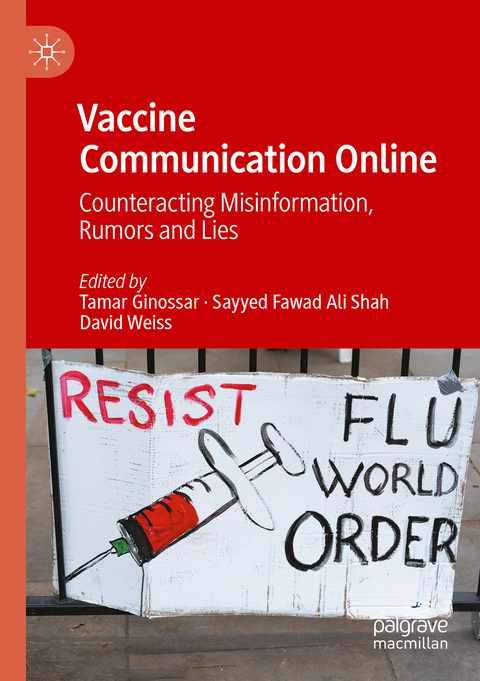
Vaccine Communication Online
Springer International Publishing (Verlag)
978-3-031-24492-6 (ISBN)
Tamar Ginossar is a Professor in the Department of Communication and Journalism and the BA/MD Program, and the Director of the Institute for Social Research, at the University of New Mexico.
Dr. Sayyed Fawad Ali Shah is an Assistant Professor in the School of Communication and Journalism at Auburn University and Chair of the Health Communication Working Group of the American Public Health Association.
David Weiss is an Associate Professor and Associate Chair of the Department of Communication and Journalism and the Director of Liberal Arts and Integrative Studies at the University of New Mexico.
Chapter 1. Introduction.- Chapter 2. Vaccine Misinformation on Social Media: Historical Contexts, Lessons Learned, and Paths Forward.- Chapter 3. HPV Vaccine Misinformation Online: A Narrative Scoping Review.- Chapter 4. Analyzing Social-Cyber Maneuvers for Spreading COVID-19 Pro- and Anti- Vaccine Information.- Chapter 5. Vaccine Support and Hesitancy on Twitter: OpposingViews, Similar Strategies, and the Mixed Impact of Conspiracy Theories.- Chapter 6. Online Foreign Propaganda Campaigns and Vaccine Misinformation: A Comparative Analysis.- Chapter 7. Online Public Outreach to Promote Public Health: Insights from Israeli Non-Governmental Organizations.- Chapter 8. From Polio to Covid-19: Anti-Vaccine Misinformation and Rumors in Pakistan.- Chapter 9. Promoting Dialogue by Thinking Differently about Framing and Correcting Misinformation.- Chapter 10. Conclusion./
| Erscheinungsdatum | 14.08.2024 |
|---|---|
| Zusatzinfo | XIX, 200 p. 19 illus. |
| Verlagsort | Cham |
| Sprache | englisch |
| Maße | 148 x 210 mm |
| Gewicht | 291 g |
| Themenwelt | Studium ► Querschnittsbereiche ► Prävention / Gesundheitsförderung |
| Sozialwissenschaften ► Kommunikation / Medien ► Kommunikationswissenschaft | |
| Sozialwissenschaften ► Kommunikation / Medien ► Medienwissenschaft | |
| Schlagworte | anti-vaxxers • Covid-19 • infodemic • vaccine disinformation • vaccine hesitancy |
| ISBN-10 | 3-031-24492-3 / 3031244923 |
| ISBN-13 | 978-3-031-24492-6 / 9783031244926 |
| Zustand | Neuware |
| Informationen gemäß Produktsicherheitsverordnung (GPSR) | |
| Haben Sie eine Frage zum Produkt? |
aus dem Bereich


